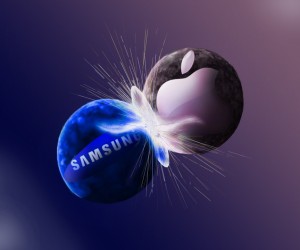Source:
http://www.smh.com.au/digital-life/mobiles/samsung-mocks-apples-iphone-6-watch-in-new-ads-20140912-10fxp3.html
Samsung and Apple in recent years have become direct competitors in the cell phone market, with the two firms products being the most successful in the market.
In September Apple unveiled the iPhone 6 and iPhone 6 plus stating that this is the biggest innovative change in iPhones since the first iPhone was unveiled. The demand for this product was high with people lining for day just to get their hands on the brand new iPhone, but soon after the release of the iPhone 6, many found that the phone in fact bended easily when placed in the pocket.
With this negative publicity due to the fault in the product, Samsung decided to add to that with a series of advertisements parodying the iPhone 6’s and Apple iWatch release. Samsung mocked Apple’s marketing gimmicks such as the phone being thinner and bigger and made it out to seem that the “innovative changes” were not innovative at all.
Although humorous, the statement “there is no such thing as bad publicity” may be appropriate here, as Samsung is indirectly but obviously mocking Apple more than they are promoting their own products in the advertisements, thus the campaign of parodies may in fact help promote Apple’s releases even more, which is irony at its best.
Ultimately both companies produce products with great demand but there is always the design aspect of Apple products that seem to lure in customers, even if Samsung’s products may have superior technology.
Nevertheless, it is always entertaining to see such rivalry on a huge scale and it is apparent with both the companies sales that this will continue as both succeed.


